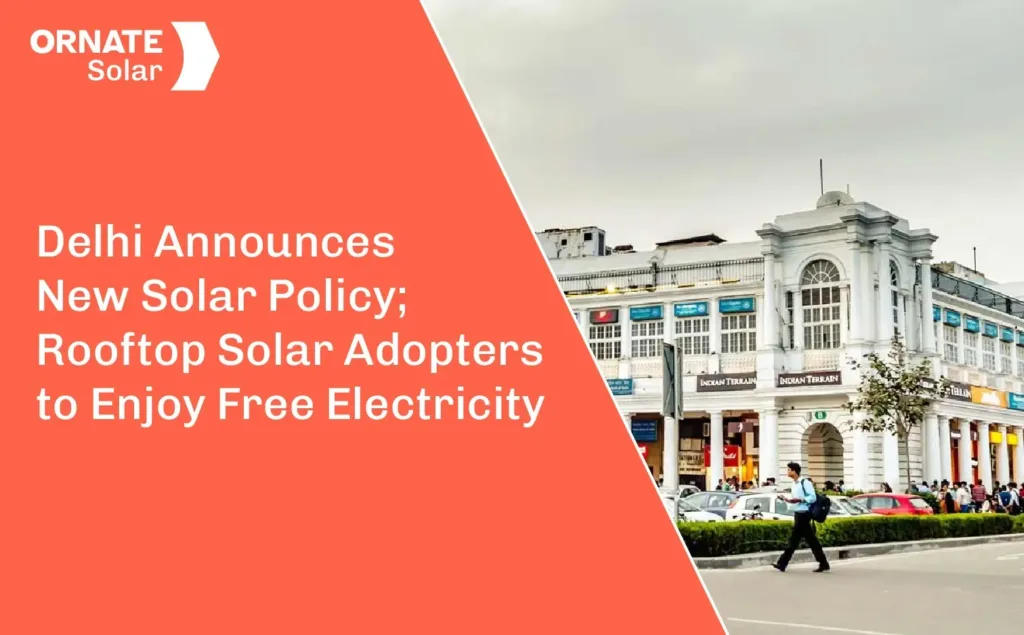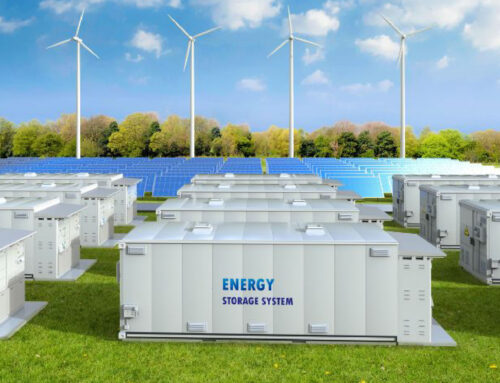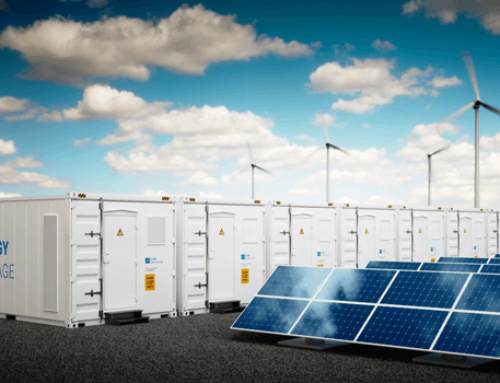

Delhi Chief Minister Arvind Kejriwal announced the new solar policy on Monday, 29th January. As per the initiative, all residential consumers who install rooftop solar plants will enjoy free electricity.
Moreover, the minister has also said that residential consumers who install solar can also earn up to ₹700-900/month through Generation-Based Incentives provided by the government. The electricity tariff of commercial and industrial solar consumers will also be reduced by 50% under this new initiative.
The Delhi Solar Policy 2024 is expected to be notified in the next 10 days.
Earlier, under the Delhi power subsidy scheme, electricity was free for consumers who consumed less than 200 units. Households with consumption between 200-400 units used to get a 50% subsidy on the bill.
But, under the new policy, the Delhi government has claimed that all residential consumers who install solar panels will get a zero electricity bill, no matter the amount of units they consume.
Explaining this further, Minister Kejriwal said that if a consumer, for example, consumes 400 units but generates 255 units through solar, then his/her bill would be zero. This is because his grid consumption would be lower than 200 units and subsided by the Delhi government.
Under the policy, the government has announced a slew of financial incentives to promote the adoption of rooftop solar. These include:
- Additional Capital Subsidy
The Delhi government will offer a subsidy of ₹2000/kW, with a cap of ₹10,000/ consumer. This subsidy will be in addition to the Central Financial Incentive provided by the central government, and will only be available to residential consumers.
- Generation-Based Incentives (GBI)
In a breakthrough move, the government will also provide generation-based incentives to consumers for 5 years from the date of installation. Rooftop solar plants of 1-3kW capacity will get a GBI of ₹3/unit and those of 3-10kW capacity, will get a GBI of ₹2/unit.
Group Housing Societies will also get a GBI of ₹2/unit. Moreover, for the first time, the government has also extended this GBI to industrial and commercial consumers with a maximum capacity of 200 MW. Such C&I consumers will receive an incentive of ₹1/unit.
- Net Metering
In addition to the Generation-Based Incentives, consumers will also enjoy net metering benefits. As per the net metering mechanism, the consumer will only have to pay the net value of the units they import from the grid.
In case surplus solar energy is generated, it can be exported to the grid. The value of this energy given to the grid would be the same as the local electricity tariff. The amount will be adjusted to the consumer’s monthly electricity bill.
Other Initiatives
Additionally, all government buildings with an area of 500 sq. m will have to install solar panels in the next 3 years.
Moreover, the Delhi Solar Policy has also come up with innovative solar deployment models for those individuals who do not have the space or capital to install solar panels.
The community solar model allows groups to set up solar plants on a third-party site and reap the benefits together. Moreover, the Hybrid RESCO model will allow consumers to lease their space to a third-party RESCO company and get solar energy at a discounted rate. Moreover, the peer-to-peer trading model will allow consumers to sell their excess power to other Delhi consumers through a P2P trading platform.
Delhi currently has a solar capacity of 1500 MW, out of which 250 MW is the total rooftop solar capacity. With this new policy, the Delhi government is aiming for 4.5 GW of solar capacity by March 2027.
As per the official statement, nearly 20% of Delhi’s electricity is expected to be sourced from solar by 2027. Moreover, the government will invest a sum of ₹570 crore for the implementation of the policy.
Power Minister Atishi has also stated that the government is planning to introduce a single-window platform soon, which will have all the necessary information about solar technology, subsidies, and empaneled vendors.











I am interested for rooftop solar system at a residential property.
Hello Anish, thank you for connecting with us. Kindly share your contact details, and our sales representative will help you better.
Also, you can get in touch with us @ 011-4353 6666